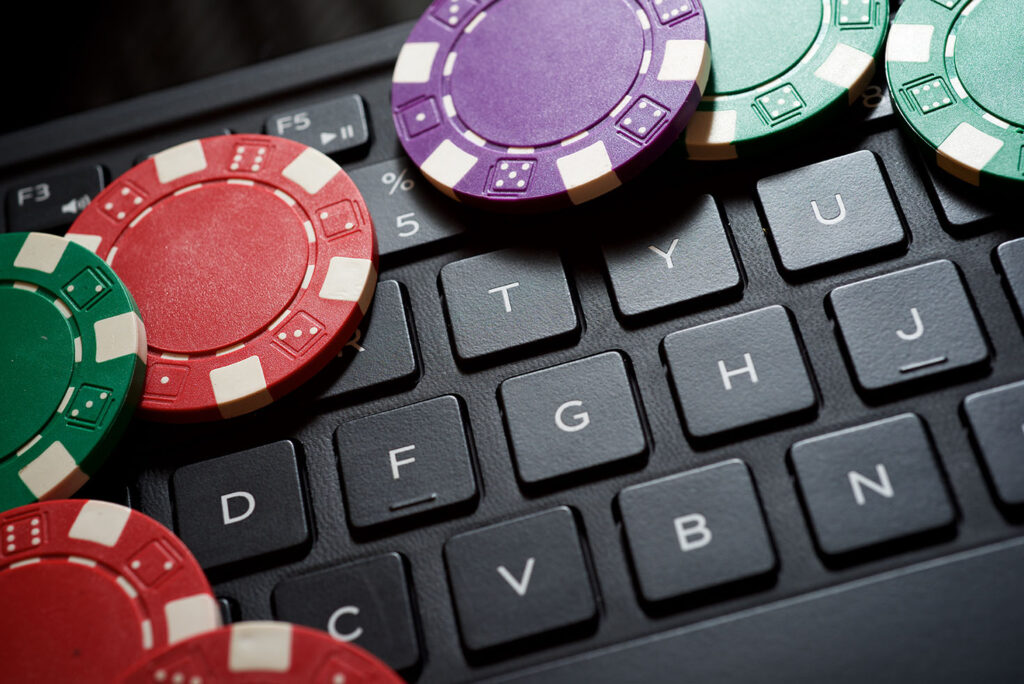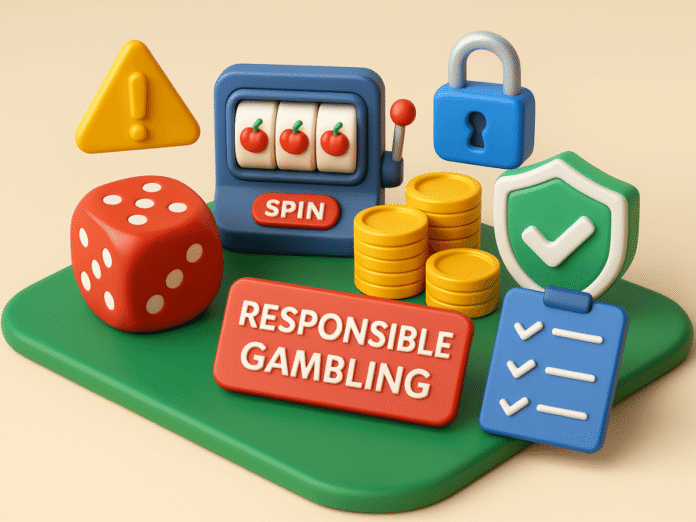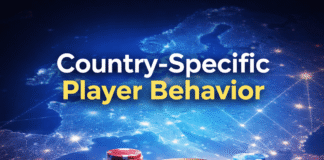In 2025, gambling has evolved into one of the world’s most accessible forms of entertainment. From sports betting and online casinos to mobile slot games and esports wagers, it’s now possible to gamble anywhere, anytime. For many people, it’s a harmless thrill — a way to have fun and feel part of a community.
But as gambling has gone digital, so have the tools that help us stay responsible and in control. The modern responsible gambling movement isn’t about telling people to stop; it’s about empowering them to play smartly, understand the risks, and use technology to keep gambling safe and enjoyable.
1. What “Responsible Gambling” Really Means in 2025
Responsible gambling means making informed choices and understanding that gambling should be entertainment, not a source of income or emotional escape. It involves maintaining balance — knowing when to stop, setting limits, and recognizing warning signs before they escalate.
In 2025, this philosophy has expanded beyond personal willpower. It now includes:
- Awareness and education, so players understand how gambling works.
- Digital tools that help track time, spending, and habits.
- Community and professional support when control starts to slip.
- Industry accountability, ensuring that gambling operators promote safety, not addiction.
It’s about being mindful, not fearful — a positive approach that focuses on long-term well-being.
2. From Stigma to Support: A Cultural Shift
For years, gambling problems were stigmatized as a lack of self-control. But modern science has changed that view. According to the World Health Organization (WHO) and the American Psychiatric Association (APA), gambling disorder is a recognized behavioral addiction. It’s not about moral weakness — it’s about how the brain’s reward system reacts to risk and uncertainty.
This understanding has inspired a more compassionate approach. Instead of shame and punishment, the focus is now on early detection, open conversations, and accessible help. Many public campaigns encourage people to talk about gambling like any other mental health topic — openly, without judgment.
The result? More people are reaching out sooner, and recovery rates are improving worldwide.
3. Real Stories of Awareness and Change
Emma’s Story – The Sports Fan Who Found Balance
Emma, a 34-year-old football fan, started betting casually during matches with friends. Over time, the thrill of “just one more bet” became a regular habit. When her betting app introduced a monthly spending tracker, Emma was stunned by how much she had wagered.
“That was my wake-up call,” she recalls. “It wasn’t the app trying to stop me — it was showing me the reality.”
Emma set a weekly spending limit and used a built-in “time-out” feature to take short breaks. “Now I still bet occasionally, but I’m doing it for fun, not pressure. Those tools gave me control back.”
Emma’s experience shows how transparency and awareness can make responsible gambling a natural part of play.
James’ Story – Taking Back Control with Tech
James, 45, struggled with late-night online slot sessions during the lockdown years. “It started as a distraction,” he says, “but I realized I was losing sleep and money.” After researching online, he found Gamban, a digital app that blocks all gambling websites and apps across devices.
“I installed it on my phone and laptop — and the urge to play disappeared within days. It felt like I’d finally put a wall between myself and temptation.”
James also contacted a support helpline and began therapy. “The combination of technology and human support was what made it work,” he adds. His story represents a growing trend — digital self-exclusion paired with professional help is becoming one of the most effective recovery models in 2025.
Sophie’s Story – Self-Exclusion as Self-Care
Sophie, a 21-year-old university student, began spending small amounts on mobile casino games, which soon added up. When she realized she was skipping social events to play, she decided to register for GAMSTOP, a program that blocks access to all licensed gambling platforms in the UK for a chosen period.
“It wasn’t about quitting forever — it was about pressing pause,” she says. “Once I had that distance, I could see things clearly.”
Sophie’s decision echoes thousands of others: self-exclusion isn’t a punishment, it’s a smart form of self-care.
4. Why Responsible Gambling Tools Work

Psychologists explain that effective responsible gambling tools work because they interrupt automatic habits — those quick, impulsive decisions that happen when emotions take over.
Features such as:
- Deposit limits
- Playtime reminders
- Cooling-off periods
- Reality checks
…all add a moment of reflection before the next decision.
Research published in The Journal of Gambling Studies (2024) found that players who used these tools were nearly 50% less likely to show risky gambling behaviors over six months compared to those who didn’t. These tools help re-engage the rational, decision-making part of the brain, giving users a chance to step back and make conscious choices.
5. Smarter Technology for Safer Play
The biggest innovation in 2025 is how artificial intelligence and data analytics are used to promote responsible gambling.
Major betting operators now employ AI systems that monitor behavior in real time. If a player suddenly increases spending, plays longer than usual, or shows emotional betting patterns (like trying to recover losses rapidly), the system intervenes automatically.
These interventions might include:
- A pop-up suggesting a break or budget review.
- Temporary suspension of play.
- Personalized messages linking to support services.
For example, companies like Flutter Entertainment and Entain have adopted systems that flag risk patterns early. Meanwhile, platforms like MindWay AI use neuroscience-based assessments to evaluate a player’s emotional state and recommend preventive actions.
Even banks are helping — digital banks such as Monzo and Revolut allow users to block gambling transactions or receive real-time alerts when betting-related payments are made.
This combination of human psychology and artificial intelligence represents a new era of proactive protection — helping people before problems begin.
6. The Power of Community and Connection
Technology can guide, but people help people recover. Peer support remains at the heart of responsible gambling.
Groups like Gamblers Anonymous (GA), BetKnowMore, and national helplines continue to offer both online and in-person support. These spaces provide understanding without judgment, helping individuals rebuild self-esteem and develop healthy coping mechanisms.
Social media campaigns like #PlaySmart2025 and #RGinAction are also creating safe online communities where people share experiences, tools, and success stories. Research consistently shows that peer support reduces relapse rates and improves emotional resilience.
7. The Industry’s Growing Responsibility
The gambling industry itself has undergone a transformation. In 2025, responsible gambling is not just encouraged — it’s expected.
Regulatory agencies worldwide are enforcing stricter rules:
- Mandatory self-exclusion options for all licensed operators.
- Real-time affordability checks to prevent excessive spending.
- Transparent odds and clear risk disclosures in advertisements.
- Restrictions on targeting vulnerable groups or young adults.
Many companies now employ Responsible Gambling Officers, whose sole job is to oversee player safety and ethical practices. Some even measure success not just by profit, but by player well-being metrics — a powerful sign of change.
8. Everyday Habits That Make Gambling Safer
Responsible gambling starts with small, simple steps that anyone can take.
Here are some evidence-based habits recommended by psychologists and public health experts:
- Set a clear budget before you start — and never exceed it.
- Treat gambling like entertainment, not a way to make money.
- Take regular breaks — step away after a big win or a loss.
- Don’t gamble when upset, tired, or under stress.
- Avoid chasing losses — every spin or bet is independent.
- Use built-in limits and blocking tools — they exist to help you.
- Talk about it — if gambling stops being fun, reach out early.
The earlier you act, the easier it is to regain balance and confidence.
9. Looking Ahead: The Future of Responsible Gambling
The next few years will bring even more innovation. Experts predict the growth of personalized responsible gambling dashboards, showing real-time risk scores and spending health.
We may soon see:
- VR-based casino breaks that gently pause play and encourage reflection.
- AI companions that coach players toward mindful habits.
- Biometric feedback systems that track stress levels during play.
These technologies aim to integrate wellness directly into gaming, making safety part of the entertainment experience itself.
10. Conclusion: Empowerment Through Awareness
Responsible gambling in 2025 is about empowerment, not restriction. It’s a modern partnership between players, technology, and community support. Real stories like Emma’s, James’s, and Sophie’s show that responsible gambling isn’t about quitting — it’s about regaining balance and confidence.
The combination of personal awareness, smart tools, and compassionate support has made it possible to enjoy gambling safely and meaningfully.
In the end, responsible gambling isn’t just a policy — it’s a mindset.
It’s knowing when to step away, when to pause, and when to celebrate responsibly.
It’s about making choices that protect your future while keeping the fun alive.
That’s the real win in 2025 — playing smart, staying in control, and enjoying the game on your own terms.
Sources:













